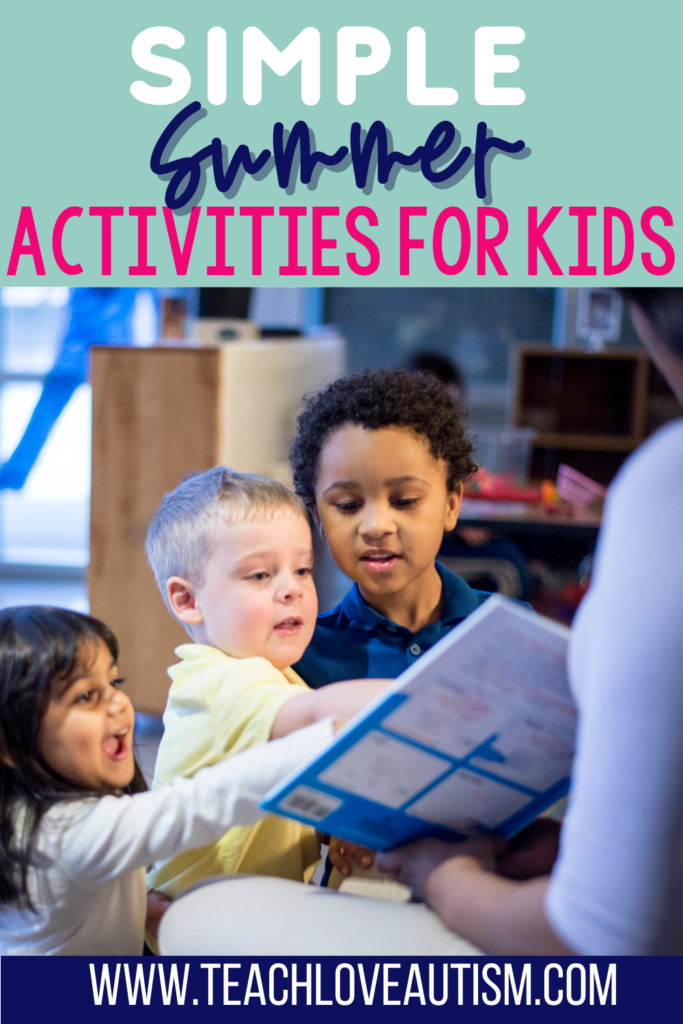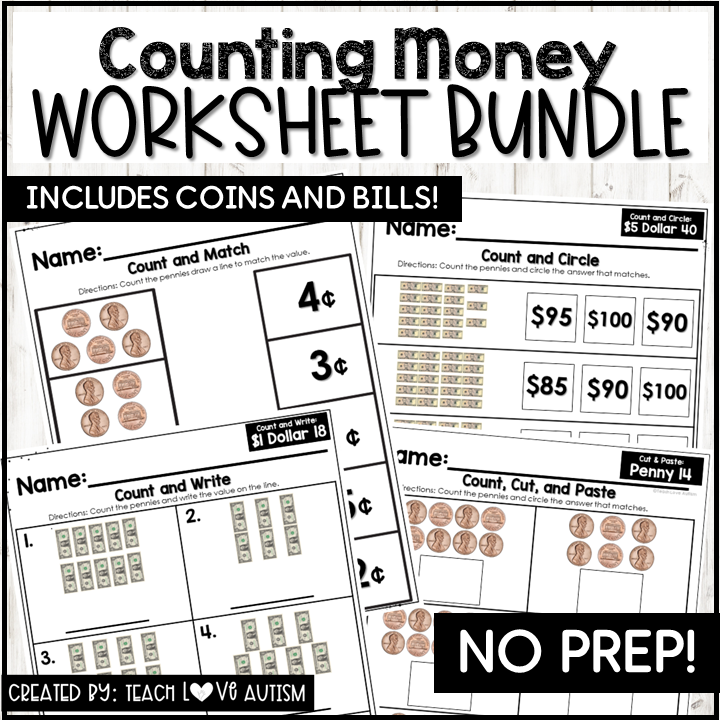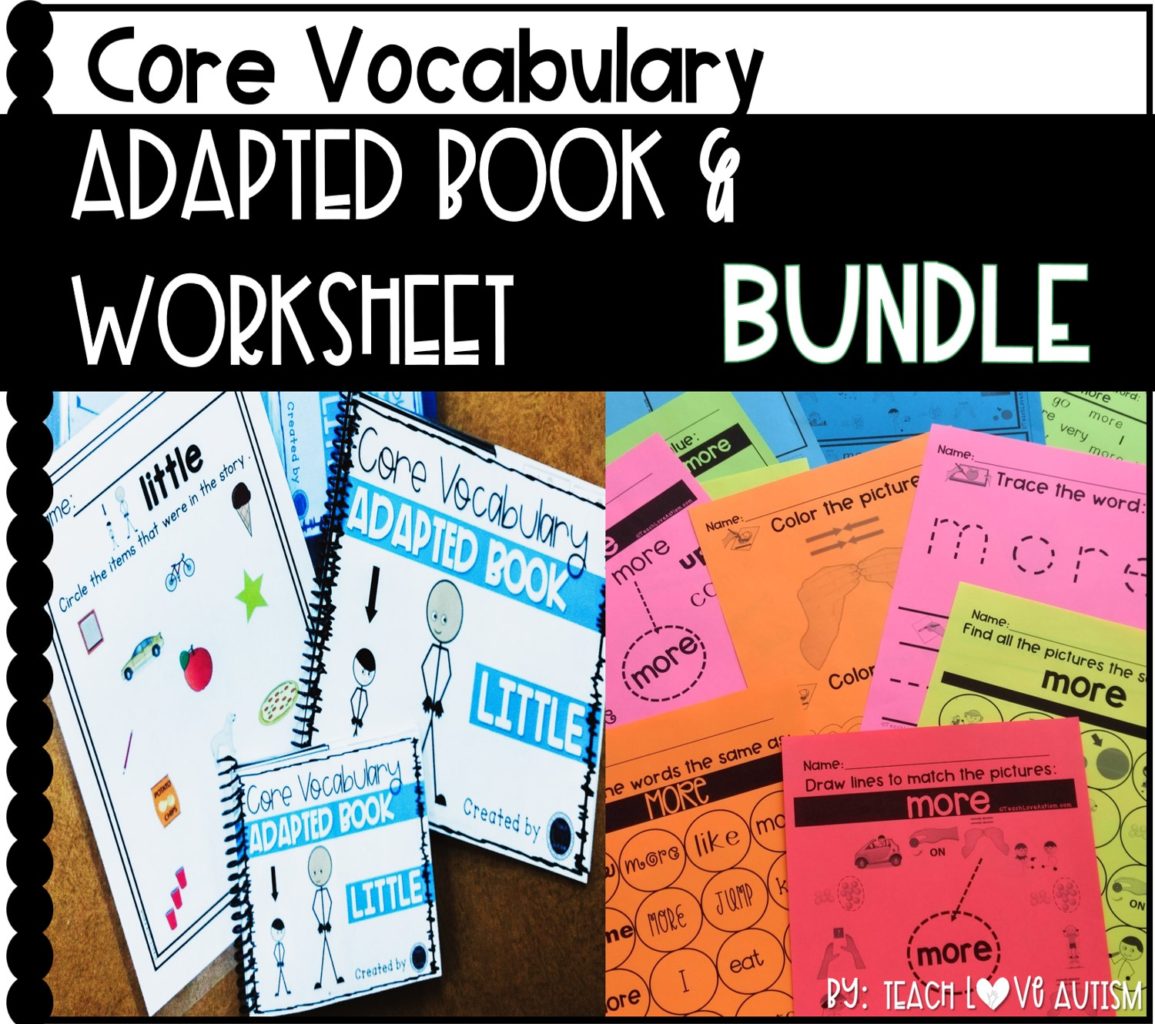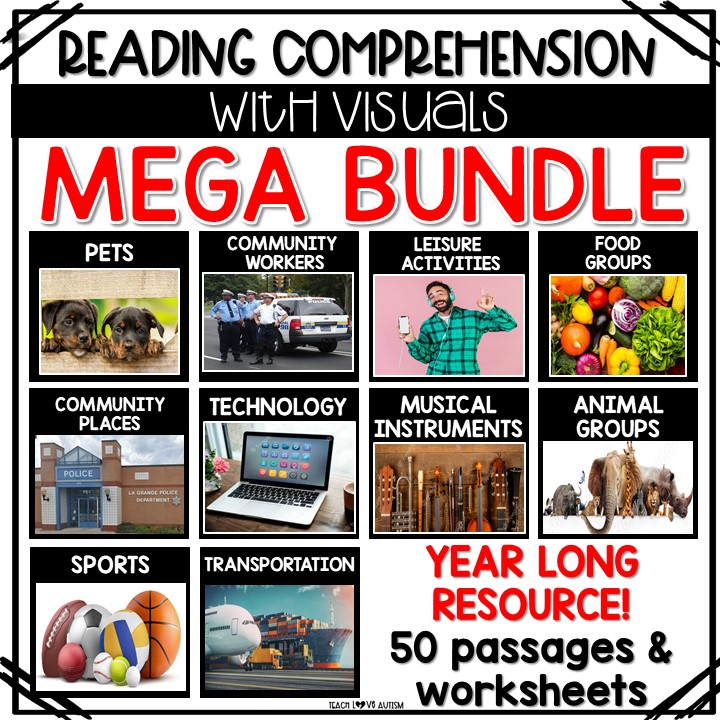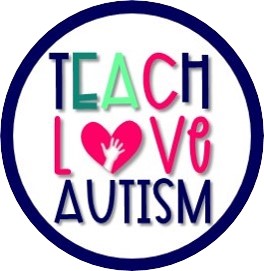5 Simple Summer Activities for Kids
Sharing is caring!
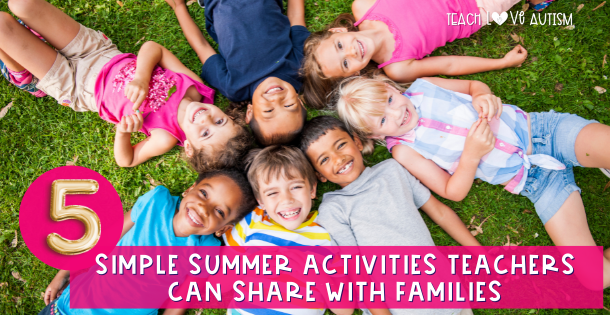
It can be hard to find summer activities for kids. I know that it can be full of questions for families. Especially for families of students with special needs. So, I try to ease the tension and worry for my families with some of the ideas I’ve listed below. If you are looking for how to prepare for summer as a teacher I have a blog too!
Information for Families for the End of the School Year
When it’s the end of the school year, we often are so focused on just getting to the end. Teachers and related service providers can do more to help! This can be a stressful time of year for families after an entire school year of routine and structure. Now it’s summer and students have lots of downtimes.
Some students have some support in the summer if they attend either summer school or an extended school year program. However, research has shown that many of us benefit from some structured activities. Who doesn’t love a schedule and a plan to set the tone of their day? Let’s read a few ideas that can work well as summer activities for kids!
Make a Summer Activity Schedule for Kids!
This can be a calendar on your fridge, a weekly chore list, or a daily set of tasks. As I stated before routine is in our human nature and children are no different. So if they are capable sit down with them before summer hits and fill that calendar in. Mark things like vacations, summer camp plans, and or other family activities you have planned. Find a few other things to keep students active but not overwhelming. Ask them for some input on things they would like to do too!
Or grab some of my favorite freebies that work perfectly for summer!
If a calendar isn’t enough make a list of chores you would like that student to do around the house. This could be things like taking out the trash, walking the dog or reading for 15 minutes. Setting a simple routine can ease the question for many children of what they should be doing. It also saves families the time of coming up with things last minute. Making a simple checklist could provide more visual support also! The child can check off the things they have completed as they go.
Of course, I also love a good daily visual schedule. It can have words, pictures, or a combination of both. Listing out a child’s whole day can provide them with the predictability they crave. Additionally, it helps to know when a break or reward is coming for the work they are completing. I love using a visual schedule like this:
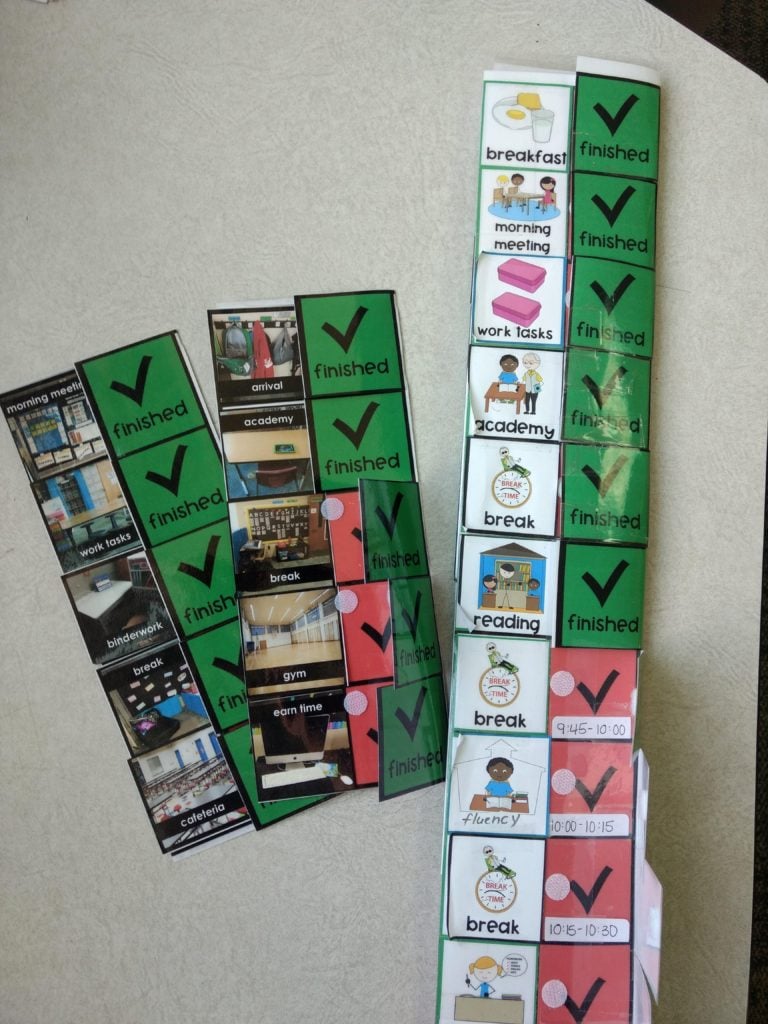
Find Fun Around the Community

Check the local newspapers, and sometimes communities have a summer guide with activities going on. This could be firework shows, community days, farmer’s markets, or storytime at the public library. Many of these are free and are great for families that want to get out in the community. Children need these opportunities even if they are in small doses to be out in their community. It provides them time to practice skills they have learned and generalize them. Things like being social, using their manners, paying for items, and safety skills. We teach these skills at home or at school, but summer is a great time to test them in the community.
Summer camps for short or long periods of time are also a great summer activity for kids. Some might be free and others cost money. You can find summer camps with themes and all degrees of participation from half-day, full-day, or even overnight camps. Check with your local area to see what is available through youth programs, schools, or camps. You might find something that interests your child in areas such as sports, art, theatre, and more!
Use Summer to Tackle Life Skills
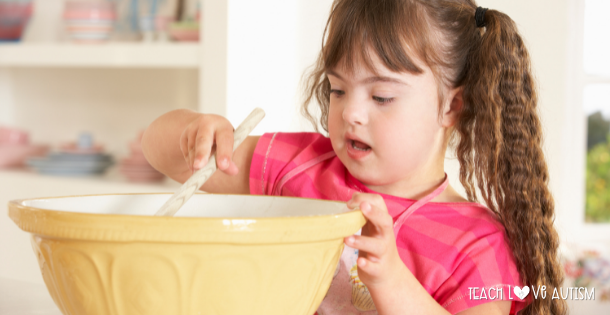
We talked about generalizing skills in the community. The summer can also be a great time to work on life skills. The things we need to know how to do but don’t learn about in most school settings. Instead of working on academics in the summer try teaching your child to do some of these things:
- Washing the Dishes
- Doing the Laundry
- Vacuuming the House
- Sweeping the Floor
- Putting Away the Groceries
- Mowing the Lawn
- Washing the Dog
- Getting the Mail
- Getting Dressed Independently
- Tying Shoes
- Putting Away Clothing
- Making a Phonecall
And you can see how I can easily go on and on. I do think that we can’t just give a child the directive of “washing the dishes”. You have to show and teach them the steps involved in that process. Most of us learn better by watching and doing. Moreover, it’s important to take the time to model these activities and provide some coaching along the way. Something I like to use is a task analysis to support. This is basically a “recipe” or list of directions on how to do that job. You can make a list with words, or use visuals with pictures (I prefer real photos) to help.
Find Volunteer Opportunities
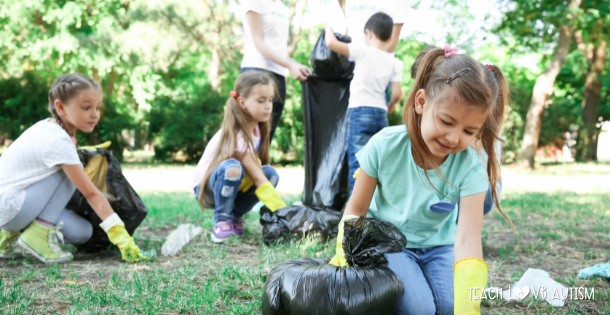
If the child is older or has an adult that can accompany them volunteering could be fun! Volunteering is a great summer activity for kids because it can help the community. There are lots of places around the community that is always looking for others to help. Some of the places that come to mind are:
- Animal Shelters
- Churches
- Libraries
- Hospitals
Sometimes you can find a volunteer opportunity that is aligned with the child’s interests. If they love to read then helping at the library could be perfect! You have found something that is super motivating for the child because they get to work with something they love. Many students I know love animals. Who wouldn’t want to spend hours petting a cat or helping to walk a dog?
Ask the IEP Team for Help with Summer Activities for Kids
Lastly, why not ask the IEP team for ideas? Ask for an IEP meeting, get the minds together that know the student best and ask for help! There is nothing wrong with asking for help. There are also agencies that can help find opportunities and ideas for children to do in the summer.
The IEP team can help with vocational opportunities, academic materials, and ideas for working on IEP goals. Working to maintain skills learned during the school year is important. As a teacher myself, I have provided summer packets of materials, visual schedules, and lists of educational websites. Most are short activities students have used in the classroom. Don’t ever hesitate to reach out to the team and get help too!
In conclusion, you can see there are lots of ideas and opportunities for summer activities for kids. Ask around your community and the people that work closely with the child during the school year. They can provide valuable information that can guide you into making this summer the best one yet for your child!
Looking for no-prep activities to fill the summer hours? I love using worksheets that are easy to print and go!
Here are a few I have:
